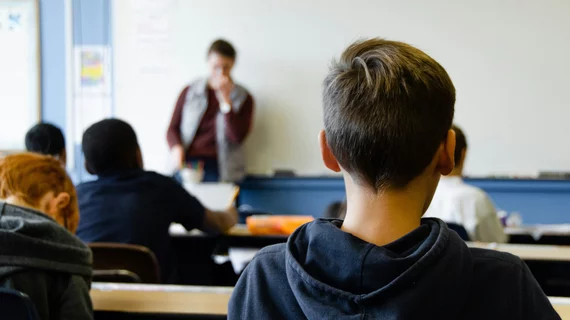Ready and willing but not yet able: America’s schools staring down GenAI
The nation’s K-12 teachers and school administrators are intrigued by—yet anxious about—the advance of AI into their world. The mixed emotions are largely explained by this group’s overall lack of firsthand experience with the technology. Also contributing to the shaky confidence is uneven advance thinking about how and when to incorporate generative AI into classroom activities.
The findings are from a survey of more than 1,000 teachers and administrators, most of whom work for public school systems. The work was conducted late last year by the San Francisco-based AI Education Project and is described in a new report.
The group, called aiEDU for short, has as its mission increasing “AI literacy” in education. aiEDU defines this term as “empowering students with the knowledge and skills they need to navigate the AI-driven world responsibly and effectively.” Here are excerpts from five key takeaways as presented in an executive summary.
1. The overwhelming majority of K-12 educators believe that a.) professional development should include sessions on the implications of AI, and b.) lesson plans should include materials to help students learn about them as well.
“K-12 educators are equal parts concerned about and intrigued by the potential uses of AI in the classroom, particularly generative AI,” the report authors write. “Despite their apprehensions, teachers and administrators alike are open not only to training on its potential uses but also on integrating this emerging technology into the curricula.” More:
More than 80% of respondents say they believe professional development should extend to AI, and 75% advocate for curricula that exposes students to information on the topic.
2. Most K-12 educators have at least heard of generative AI, but a majority haven’t used these tools. And they’re divided about whether they want to.
AI in general and generative AI specifically are “much more divisive than previous technological revolutions,” aiEDU notes.
Most K-12 educators have yet to see the value these tools can provide, with some completely closed to its potential.
3. K-12 educators simultaneously downplay the impact of generative AI in the classroom and express concerns about its use. They still think it should be part of the curriculum.
When respondents filled out the survey in late 2023, ChatGPT and other generative AI tools had been on the market for less than a year, the authors point out. That helps explain why “the overwhelming majority believe the technology has had no more than a moderate impact on students to date.” More:
It also explains the conflicting views educators hold about generative AI: Despite its potential for misuse, they agree that students still need to understand it and reap its benefits.
4. K-12 educators recognize the potential benefits of using generative AI in the classroom—but feel most passionately about the potential pitfalls.
As with all emerging technologies, successfully integrating generative AI into the classroom “requires K-12 educators to experiment with new uses and, importantly, accept that not all of them will be successful,” the group writes. “That requires a leap of faith that, based on the results of the survey, many are not yet comfortable taking.” More:
One respondent expressed fear AI will make students so reliant on technology that ‘they (can) no longer think for themselves. … They won’t see a need to learn and therefore won’t.’
5. K-12 administrators are more hopeful than teachers about the impact generative AI could have on teaching and learning.
The survey results show that administrators (62.1%) are more likely than teachers (49.9%) to have “slightly positive” or “strongly positive” feelings toward AI in general.
Though it’s impossible to know exactly why this is true, one possible reason is that administrators are afforded a broader view of the work going on in their schools.
For the executive summary and a link to the full report, click here.

